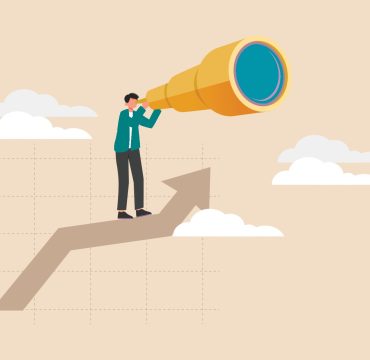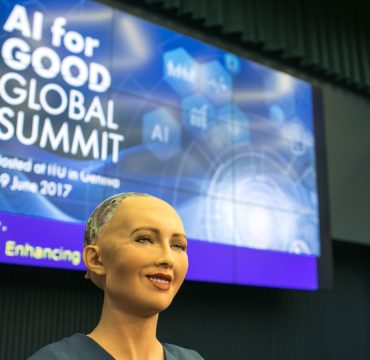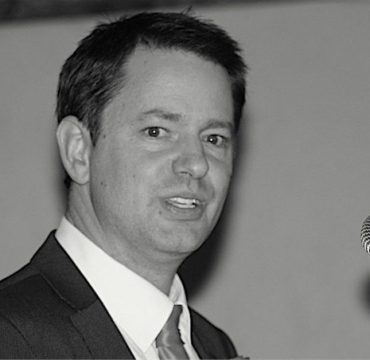Becoming a data scientist: insights from a professional

Meet Diana Pholo.
With thirteen years of experience lecturing, and with both an MTech in Intelligent Industrial Systems and an MSc in Electrical and Electronic Systems. At Predictive Insights, Diana integrates machine learning models into web applications and front-end development.
Hear what she has to say about entering the workplace as a data scientist.
- As a successful data scientist, what unique challenges did you face during your transition from academia to the business world, and how did you overcome them?
- Making the transition from academia to the business world, especially in the field of data science, can be quite a journey! One of the challenges I faced as an academic was how to apply data science theory to real-world problems. So it was important for me to take on some practical courses and projects to bridge that gap between theory and practice. Another hurdle I encountered was getting up to speed with business concepts and industry trends, especially in the specific domains we work with at Predictive Insights.
Thankfully, I had the support of a fantastic team. They were and still are always willing to take the time to teach and guide me. Their mentorship and expertise made a huge difference in helping me navigate the business side of things.
- Making the transition from academia to the business world, especially in the field of data science, can be quite a journey! One of the challenges I faced as an academic was how to apply data science theory to real-world problems. So it was important for me to take on some practical courses and projects to bridge that gap between theory and practice. Another hurdle I encountered was getting up to speed with business concepts and industry trends, especially in the specific domains we work with at Predictive Insights.
- Can you share any tips or insights for young data scientists who are about to enter the workforce and start their career? (What are some key skills or qualities that make someone a good data scientist?)
- Develop a Strong Foundation in Statistics and Maths. A solid understanding of statistical concepts and certain mathematical principles is essential for data scientists. Take the time to strengthen your knowledge in areas like probability, linear algebra, and calculus.“Develop a Strong Foundation in Statistics and Maths. A solid understanding of statistical concepts and certain mathematical principles is essential for data scientists. Take the time to strengthen your knowledge in areas like probability, linear algebra, and calculus.
- Develop a Portfolio. Show off your skills by creating a portfolio of data science projects. Get your hands dirty on platforms like Zindi or Kaggle. There you can tackle real-world problems using data-driven approaches. Let your projects do the talking for you!
- Collaborate and Network. Collaborate with fellow data enthusiasts, get involved in data science communities, and join meetups or forums. Networking opens doors to endless learning, knowledge-sharing, and growth opportunities.
- Stay curious! The field of data science is ever-evolving, so it’s crucial to stay curious and committed to continuous learning. Stay updated with the latest research, industry trends, and emerging technologies. Engage in online courses, attend conferences, participate in Zindi competitions, and explore exciting new data science projects.
- Develop a Strong Foundation in Statistics and Maths. A solid understanding of statistical concepts and certain mathematical principles is essential for data scientists. Take the time to strengthen your knowledge in areas like probability, linear algebra, and calculus.“Develop a Strong Foundation in Statistics and Maths. A solid understanding of statistical concepts and certain mathematical principles is essential for data scientists. Take the time to strengthen your knowledge in areas like probability, linear algebra, and calculus.
Ready to start building your portfolio?
Check out our competition on Zindi.
- In your experience, what are some notable differences between the data science industry in South Africa and other regions, and how can aspiring data scientists leverage those differences to their advantage?
- The data science scene in South Africa is still blooming compared to more established regions like the United States or Europe. But that’s what makes it exciting! This gives an opportunity for aspiring data scientists to enter a growing field with increasing demand for skilled professionals.
- South African industries, such as mining, agriculture, finance, and healthcare, have unique needs which can be very specific to the local landscape. Aspiring data scientists can leverage these differences by gaining domain-specific knowledge and tailoring their skills to address the specific needs of these industries.
- We’ve got our fair share of social and economic challenges too, like inequality and poverty. Aspiring data scientists can use their skills for good! They can explore opportunities to work on projects related to healthcare access, education, or economic development. By aligning your work with these important causes, you can be part of the change and make a meaningful difference in your own community.
- The data science scene in South Africa is still blooming compared to more established regions like the United States or Europe. But that’s what makes it exciting! This gives an opportunity for aspiring data scientists to enter a growing field with increasing demand for skilled professionals.






